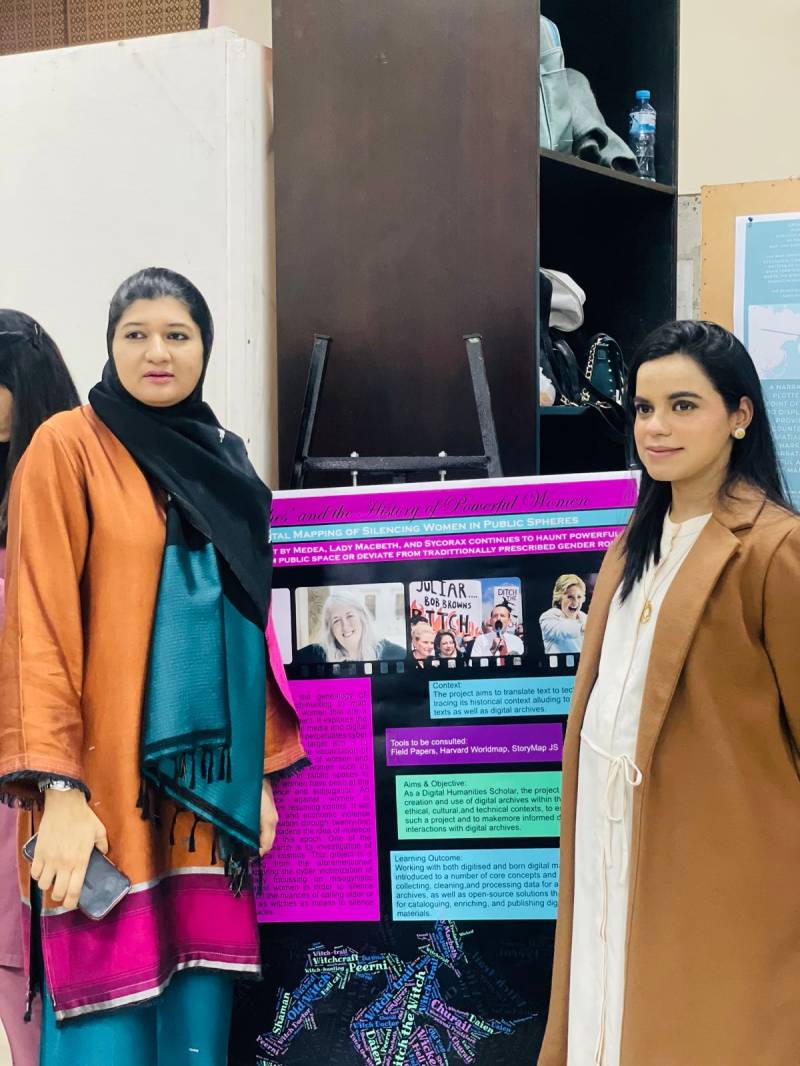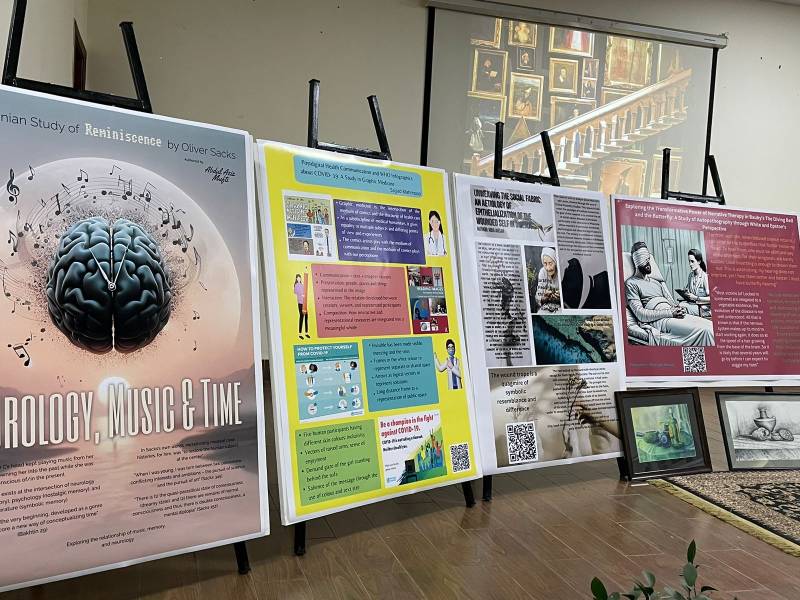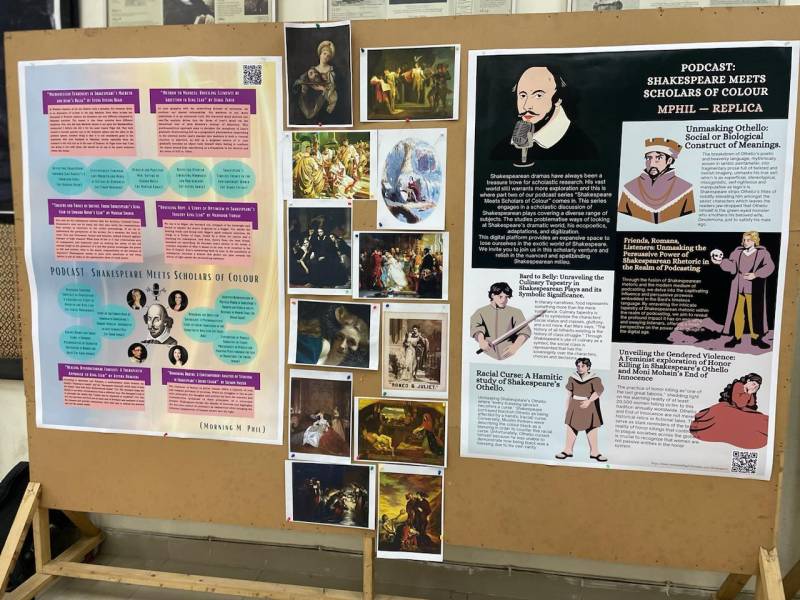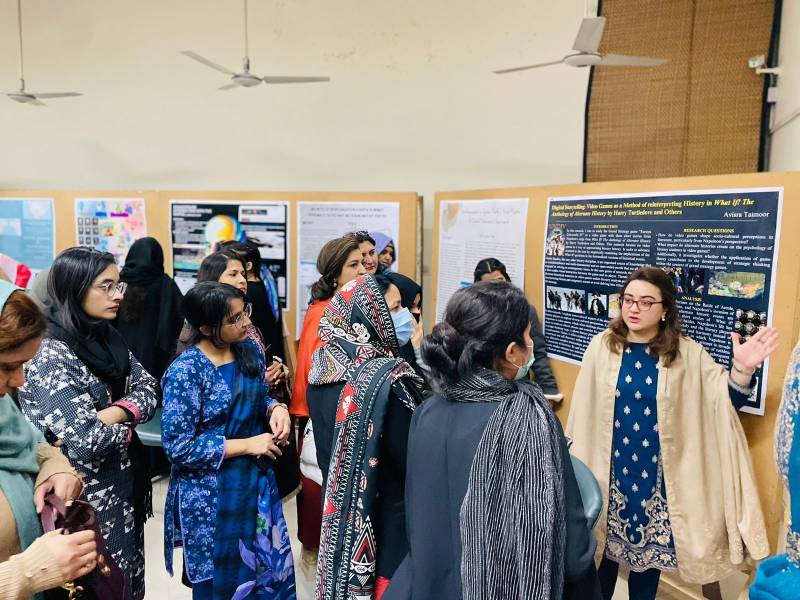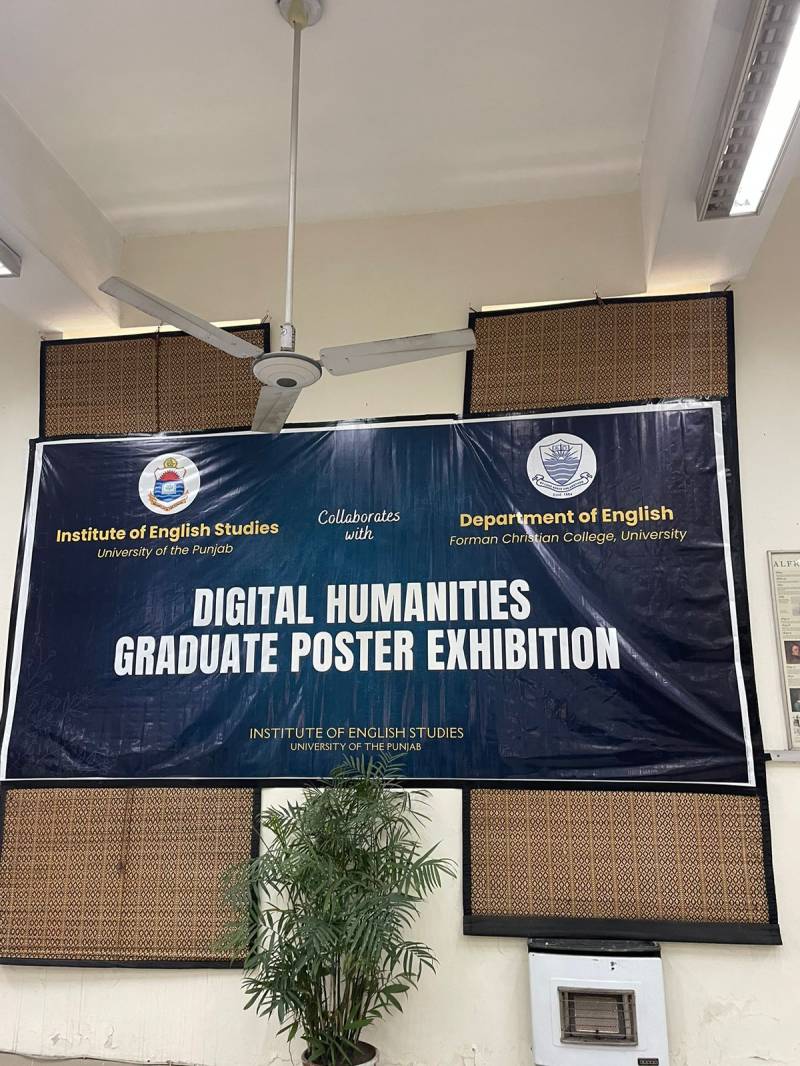In an era marked by technological advancements, the field of humanities is also embracing the digital age by providing a mediating space for literature and the digital world. The ubiquitous presence of the traditional paperback book is gradually receding from our social spaces. However, this shift should not be viewed as a challenge; rather, digital and social media present an opportunity for innovation within the field of humanities.
In a captivating celebration of this digital turn, the Institute of English Studies (IES) at the University of the Punjab recently hosted a Digital Humanities Graduate Poster Exhibition, shedding light on the intersection of literature and technology.
In collaboration with the Department of English, Forman Christian College University, the exhibition brought together scholars, teachers, and students from various universities. The exhibition aimed to emphasize the critical engagement between technology and the humanities.
As we navigate the digital landscape, it is essential to explore how literature and the digital world intersect. The Institute of English Studies has been at the forefront of promoting digital literacy. In 2019, a course for “Digital Humanities” was introduced for graduate studies. Under the supervision of Associate Prof. Dr Amna Umer Cheema, this initiative was the first of its kind in Pakistan. Dr. Cheema’s dedication to digital humanities has inspired students for the past five years, fostering a dynamic learning environment where collaborative research-based projects continue to leave an indelible mark on the academic landscape. She is also credited with pioneering the emerging field of “Medical Humanities” within doctoral studies, which offers a unique humanistic perspective on medical epistemology. This interdisciplinary approach holds immense potential and vitality for addressing contemporary healthcare challenges.
As we embrace the digital turn in humanities, the Institute of English Studies (IES) continues to foster a dynamic space where literature, technology, and critical thinking converge. The Digital Humanities Exhibition serves as a testament to their commitment to shaping a relevant and forward-looking academic landscape. It exhibits the cross-disciplinary potential of the humanities in the modern era, revealing uncharted landscapes of engagement with STEM subjects and other branches of knowledge. This is an avenue for the field of humanities to serve public institutions and public good in a more meaningful manner.
Of the eighteen posters exhibited by the IES students, six were presented by the current batch of PhD scholars, delving into the fascinating realm of medical humanities. These insightful works explored the intersection of medicine, culture, and society, shedding light on critical issues through their digital footprint - “PhD Research Project: Medical Humanities” at https://www.instituteofenglishstudies.asia. The remaining posters revolved around the broader field of digital humanities. These interdisciplinary research works demonstrated the collaboration of technology and humanistic inquiry. The posters presented by the current batch of MPhil students shed light on Shakespeare from the perspective of scholars of colour. They reflected a diversity of ideas surrounding Shakespearean dramaturgy originating from our part of the world.
A patchwork of research extracts was offered on the posters, providing a conceptual framework situated at the intersection of law, politics, philosophy, literature, and culture. Amidst recent criticism on Shakespeare that explores the archival material on early modern notions of monarchy, leadership etc., the research-based posters invited the onlookers to an intellectual odyssey from the Shakespearean world to the present one. They offered a thought-provoking and insightful experience that transcended temporal and geographic concerns of early modern England. The introduction of digital advancements also allowed the emerging scholars to take their Shakespearian research to audio-based media platforms in the form of podcasts.
Embedded QR Codes leading to these podcasts were present on the posters for the sake of auditing “Shakespeare meets Scholars of colour” at https://www.instituteofenglishstudies.asia. These efforts undoubtedly enriched the online presence of their institute and invited possibilities of technological headway within the field of humanities.
Of the 12 posters exhibited by the students of FCCU, all were centred around variable dimensions of digital humanities and were worth the exploration for the attendees. Each poster served as a window into the dynamic fusion of technology, culture, and critical inquiry. The event also attracted students and scholars from various other universities, including Government College University Faisalabad, COMSATS University, Lahore College for Women University, Superior University, and University of the Central Punjab.
Converging to explore this captivating display, their engagement with the posters was palpable as they immersed themselves in discussions, exchanged ideas, and celebrated the potentials of interdisciplinary exploration.
On the whole, the event garnered an encouraging response from the community. Visitors representing diverse fields of study expressed optimism about the prospects of digital humanities. Many evinced their keen interest in introducing such courses and events in their institutions. They expressed the potential of finding renewed purpose through this synergy. For many, this emerging approach offers a unique avenue for engaging with and transforming research in our technology-driven era. Conversations buzzed around the relevance of integrating digital tools into traditional humanities disciplines.
The Institute of English Studies (IES) reaffirmed its forward-thinking ethos by organizing this event. The trends it has set are now echoing across academia nationwide. Several universities have followed suit by incorporating digital humanities into their curricula, including Forman Christian College and University of Central Punjab.
As witnessed in this exhibition, the times demand collaboration. Engaging efforts that highlight the transformative power of digital humanities are essential for safeguarding the discipline’s essence. Professors Dr. Raza and Dr. Cheema, visionaries behind this initiative, have exhibited a foresight that is bound to illuminate a path toward a harmonious coexistence of tradition and innovation. They express hope that the discipline benefits from such engaging and collaborative efforts that highlight the potential of digital humanities to transform humanities and salvage its face from eroding in the tempest of technology.
The pursuit of digital humanities is not merely an academic endeavour; it is a bridge to societal evolution and the nurturing of our collective intellect. As the eagerness of emerging scholars from various universities at the poster exhibition reflected, digital literacy has indeed become crucial in interacting with technology and literature. The posters and other modes of displaying research in literary and other fields of humanities can not only voice the concerns of researchers but also invite spectators to a critical engagement with a world mediated by technology.


